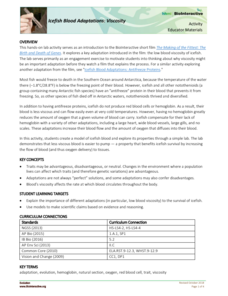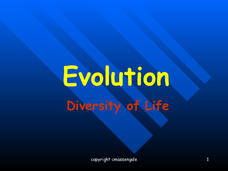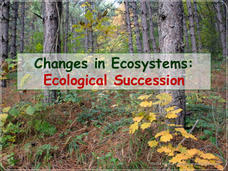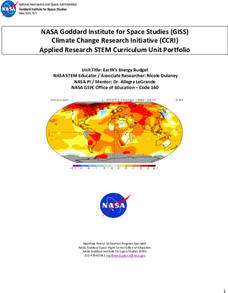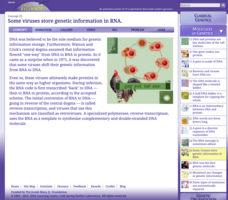Howard Hughes Medical Institute
Icefish Blood Adaptations: Viscosity
Most fish freeze to death when the water is too cold, yet some fish live in the Southern Ocean where the water is often below freezing. Scholars use two models representing the blood from most fish versus the blood from Antarctic fish....
Pearson
Transcription
Teach young biologists the language of life with this series of worksheets on DNA. By working through these pages, students expand their understanding of genetics as they learn about the process of transcription and the...
Port Jefferson School District
Hurricane Katrina
Young scientists track Hurricane Katrina across the Atlantic Ocean as they learn about these destructive forces of nature. Provided with a table of data tracking the location and conditions of Katrina over a one week span, students...
Polar Bears International
Top of the World
Learn about polar bears and the Arctic circle with a lesson about the countries and conditions of the region. After examining how the area differs from Antarctica, kids explore climates, animals, and geographical position...
Australian Government
The Great Artesian Basin
Covering 23% of the continent and holding 64,900 cubic kilometers of water, the Great Artesian Basin is the primary source of water for much of inland Australia. Using detailed student worksheets, experiments, and case studies,...
America's Blood Centers
My Blood, Your Blood
Dracula isn't the only one who needs blood to survive. The eight-part unit includes seven lessons, five demonstrations, seven labs, and a project to organize a blood drive. Class members learn about the parts of...
Biology Junction
Protein Synthesis
Watson and Crick built the first model of DNA in the 1950s, and our understanding of DNA since then continues to grow exponentially. Scholars learn about protein synthesis by observing a presentation and completing a worksheet. Both walk...
Biology Junction
Evolution – Diversity of Life
Scientists noticed animals with backbones share similar bone structure despite having different forms, such as fins, arms, and wings. Young scientists gain an appreciation for evolution by understanding the history of the theory. They...
Biology Junction
Kingdom: Fungi
Based on DNA, fungi relate more closely to animals than to plants. This new scientific knowledge shifted the world view of scientists and opened up new classifications. Viewers learn about fungi's place in evolution, in the tree of life,...
Biology Junction
Changes in Ecosystems: Ecological Succession
Can an area with no soil turn into a forest? Scholars learn about the process of ecological succession using an interesting presentation. It covers both primary and secondary succession in the building of new ecosystems.
Biology Junction
Water Biomes
Water covers more than 70 percent of Earth's surface. Scholars learn about both freshwater and saltwater biomes in a simple presentation. They compare and contrast the differences in oxygen levels, food sources, and sunlight to better...
NOAA
The Climate Team: Make a Solar Heat Engine
Learners investigate how solar energy is converted into heat in part two of the 10-part Discover Your Changing World series. They build and test homemade solar cookers to boil water and cook rice. Pupils consider the impact of heat...
National Wildlife Federation
The Pollinator's Journey: Grades K-8
Bees get all the attention, but so many more creatures contribute to pollination. Scientists explore the role of pollinators as they learn about the parts of a flower and how it reproduces. They discover how plants rely on many different...
CK-12 Foundation
Pan Flute
How can a pan flute sound one note while we hear a chord? The simulation explores sound waves, vibrations, and harmonics at the molecular level. Scholars control the pipe into which air is being blown, the length of the pipe, and which...
NASA
Earth’s Energy Budget
Take the time and energy learn about Earth's energy budget. An engaging unit of four lessons focuses on the components that make up Earth's energy budget. Future scientists come up with a formula for the energy budget, then use software...
Rhythm Rhyme Results
Whatʼs the Same and Whatʼs Different?
Learn about radiation, convection, and conduction with a multiple choice worksheet. Each question prompts kids to decide what is different about each form of heat energy transfer, and what is the same.
Twisty Noodle
Mammals Book
What do a sheep, a boy, and a bat have in common? Learn about mammals with a mini book that lists many different types of mammals. Kids can color the fun illustrations and compile the pages to publish their own mammal books.
Nuffield Foundation
Monitoring the Body's Reaction to Stress
When stressed, do you prefer the fight or flight response? Scholars observe, measure, and identify the body's response to stress using a well-researched methodology. They learn about the autonomic nervous system, hormones, and more.
Biology Junction
Mammals
Mammals include more than 4,000 species and represent the most dominant land animals on Earth. Scholars learn about the large variety of mammals, including orders unfamiliar to most. The presentation highlights the characteristics and...
Pingry School
The Alchemist's Dream – Copper into "Gold"
Many scientists attempted alchemy for hundreds of years before a full understanding of metals became clear. Scholars take a penny and, through two different chemical reactions, make it appear to turn into silver and later gold. They...
Cold Spring Harbor Laboratory
RNA Is an Intermediary Between DNA and Protein
For years, scientists believed tRNA was junk left over from larger RNA. Three scientists used different approaches to prove tRNA actually exists as the connection between DNA and protein. Learn about their experiments, their lives, and...
Cold Spring Harbor Laboratory
Mendelian Laws Apply to Human Beings
Why are so many inherited diseases more prevalent in populations of specified races? Scholars learn about pedigrees and genetics using a reading, an animation, primary sourced letters, a short video, a biography, a guided practice...
Cold Spring Harbor Laboratory
DNA Responds to Signals from Outside the Cell
How do cells know when to replicate, transcribe, and stop? James E. Darnell, Jr. shifted from studying medicine to biochemistry and decided to address this mystery. Learn about his research, discoveries, and the impact on future medical...
Cold Spring Harbor Laboratory
Some Viruses Store Genetic Information in RNA
Can a high school program alter the entire course of your life? David Baltimore and Howard Temin participated in high school programs working in research laboratories and went on to win the 1975 Nobel Prize. Learn about these two...
